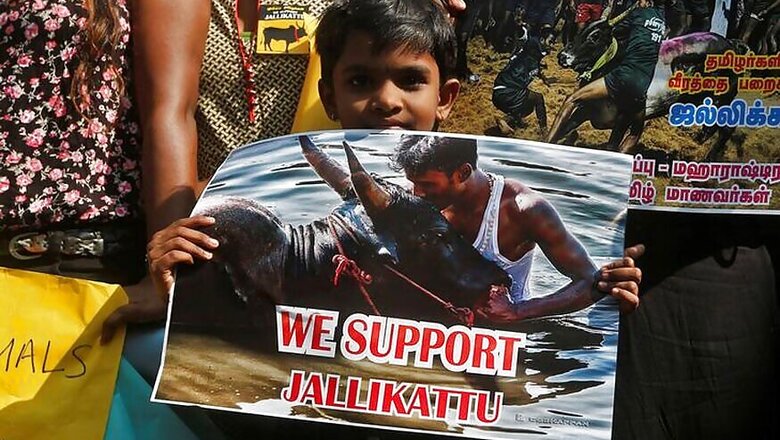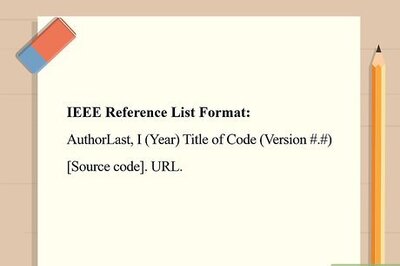
views
New Delhi: As the Tamil Nadu Governor signed an ordinance to pave the way for holding of Jallikattu, constitutional experts on Saturday said the government was within its rights to issue the ordinance but it could be struck down if it undercuts the Supreme Court verdict.
The top court's judgment dated May 7, 2014, said the rights guaranteed to the bulls under the Prevention of Cruelty to Animals Act, 1960, could not be taken away or curtailed.
The Supreme Court on Friday agreed not to pronounce its verdict on Jallikattu for one week in the wake of large scale protests in Tamil Nadu against the ban on the bull-taming sport.
The experts IANS spoke to said issuance of the ordinance was part of legislative powers and it could be issued in case of urgency.
Subhash Kashyap, former Secretary General of the Lok Sabha, said there should not be any difficulty for the state government to bring an ordinance to ensure Jallikattu "as the legislative power is not suspended in case a matter is sub judice".
Another expert P.D.T. Achary, another former Secretary General of the Lok Sabha, said the ordinance will change the situation before the Supreme Court.
"The Supreme Court banned Jallikattu on the basis of provisions in the Prevention of Cruelty against Animals Act. If legislature has amended the Act and taken the bulls out (of the performing animals list), then the (earlier provisions of) law become infructuous," Achary said.
The experts maintained that the apex court can examine the validity of the ordinance, if someone challenges it on the ground of it being in conflict with the central law -- the PCA Act.
"The ordinance is subject to judicial scrutiny. The court will decide if it is ultra vires or intra vires," Kashyap said.
Achary said that the Supreme Court can always strike down an ordinance if it is found to be "against the Constitution or out of the jurisdiction of Parliament".
These experts said the court cannot take up the ordinance for review suo motu.
Senior lawyer Anand Grover said one can challenge an ordinance in court.
"It depends on what kind of ordinance (has been promulgated). If it is trying to undercut the judgment without changing the underlying basis then it will be unconstitutional," Grover said.


















Comments
0 comment